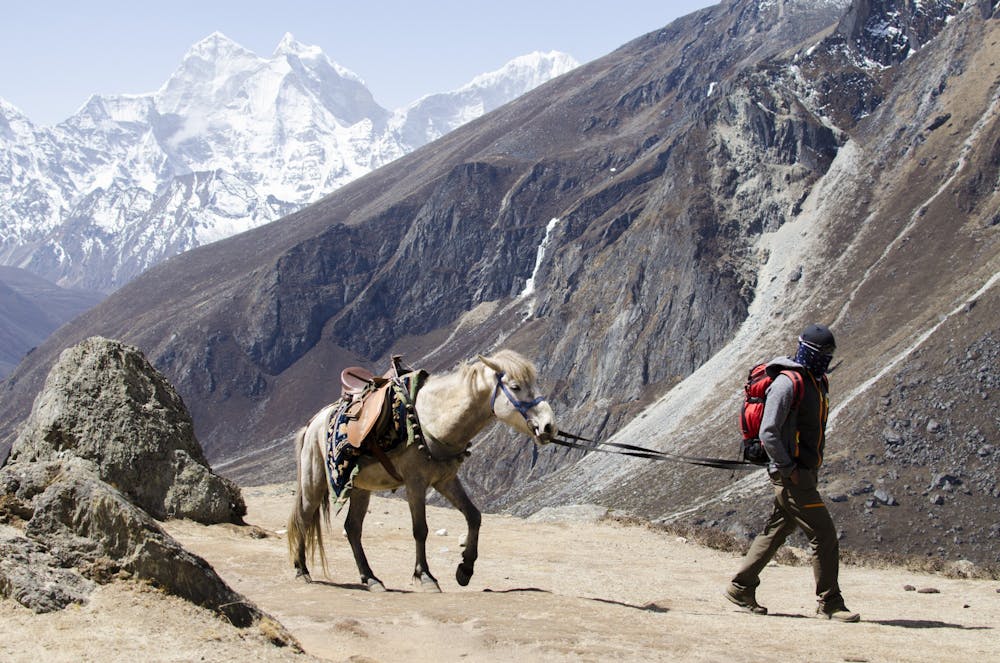Summer 2022 Ecuador study abroad opportunity
Assistant lecturers of Communications Studies Ashley Coker and Michael Storr plan to lead a five-week study abroad program in Cuenca, Ecuador this summer May 11 – June 19.
Each participant can choose two communication classes to take during their trip. The trip will cost $2,864 + airfare and tuition. If interested, contact Ashley Coker at acoker@bsu.edu. Contact the study abroad director with any questions, at jwjensen@bsu.edu.
Source: Ball State Communications Center
Editor’s note: Zander Lichosik previously worked for The Ball State Daily News as a sports reporter.
For junior exercise science major Zander Lichosik, the past two years have been a frustrating waiting game.
In his freshman year, Lichosik applied to the U.K. Fulbright Summer Institute (FSI) scholarship. He was supposed to study abroad in Scotland in summer 2020. But, like many other college students impatiently waiting to travel overseas, a global pandemic put Lichosik’s plans on pause.
“I am not sure what’s going to happen, so I would say that’s my biggest concern,” Lichosik said. “I have no idea what could happen within the next couple of months. COVID could get worse again, it could get better.”
Lichosik heard about the FSI scholarship through the Honors College in a freshman seminar hosted by Barb Stedman, director of national and international scholarships and Honors fellow.
Stedman said she informs Ball State students about scholarship opportunities through presentations, emails and social media posts. She also works closely with students who decide to apply for scholarships.
Stedman said COVID-19 has taken a toll on study abroad opportunities.
“The heartbreak occurs when I’ve had students apply for and win scholarships to support study abroad, and then they’ve had to decline the scholarships, ultimately, because they’re not allowed to go to the countries that they won the scholarships for,” Stedman said.
Stedman said students can still have access to the scholarship money if their trips are canceled, but they won’t be able to use the funds until it is safe to study abroad, like Lichosik — who hopes to use his 2020 award this summer.
“He won the U.K. Fulbright Summer Institute award as a freshman back in 2020. That would have sent him to Scotland for three weeks over that summer,” Stedman said. “Well, of course, COVID hit, and so he was not allowed to go that year.”
Students who graduated during the pandemic, Stedman said, weren’t able to defer funds and had to cancel their trips entirely. However, Lichosik and other underclassmen who pursued study abroad opportunities early in their college careers still have a chance to travel, she added.
“That, sometimes, is what will happen, that the award is simply just held for those students if they choose to try to claim it at a later date,” Stedman said.
For students who had time to postpone their trips, “they can hold onto the money, maybe apply it to a different study abroad opportunity, or in two cases, I’ve had students line up virtual international experiences, still giving them that exposure to international ideas,” Stedman said.
When it comes to the application process, Stedman said the majority of students who stand out when applying are those involved in extracurriculars because foundations want to ensure students will engage themselves with people and new cultures during their study abroad experiences.
“Let’s say you have a 4.0 GPA, but that’s all you really do, is go to class and get good grades,” Stedman said. “Honestly, scholarship foundations typically aren’t going to be that interested in [those] students.”
Lichosik said the FSI application process involved a series of essays before he was accepted for an interview, which Stedman said is “always going to be the heart of any scholarship application.”
“The bigger [essays] were more about yourself, pretty much advertising yourself,” Lichosik said, “so describing yourself as a leader and just trying to let the committee know who you are before you meet them and go through the interview process.”

Before the COVID-19 pandemic, between 3-400 students participated in study abroad programs each semester. Some scholarships given to students to support study abroad opportunities have been deferred until they are able to use them. Rinker Center for Global Affairs, Photo Provided
John Jensen, director of study abroad at Ball State, said study abroad has multiple benefits for students. He hopes more will take the opportunity after the pandemic ends.
“In addition to the academic benefits of exploring discipline from another perspective, the personal growth that takes place from challenging your perspectives, customs and behaviors are lifelong,” Jensen said via email.
Jensen studied abroad when he was in college and said his experience in London was eye-opening.
“It was a life-changing, impactful experience, especially as a first-generation college student, as it opened my eyes to the reality that our culture and way of life is only a part of a much larger global mosaic,” Jensen said.
Jensen said only a small percentage of Ball State students take the opportunity to study abroad.
“Pre-pandemic, generally 3-400 Ball State students participated in credit-bearing study abroad programs per year,” Jensen said. “Additionally, our office provided risk management support for 100-plus students participating in non-academic international programs that run through other Ball State University offices and/or departments.”
Susan McDowell, vice provost for research, leads an international travel oversight committee, which reviews travel requests from professional staff who apply to take students on study abroad trips. A four-point scale determined by the U.S. Department of State ranks security risks associated with different countries, with level one being lowest risk and level four recommending not to travel at all to that country.
Ball State allows students to travel at levels one through three, McDowell said, but an application and approval is required at each stage. Level four never allows students to travel.
“Currently, that commonly is COVID,” Stedman said, “but there can also be security risks associated with crime in the area.”
McDowell said some of the study abroad programs have been shifted to domestic travel instead of an international travel schedule, and she sometimes has to tell students and faculty they can’t travel but wants to make sure they understand her empathy.
“I try to express our understanding that this is not an easy message that they’re receiving,” McDowell said. “We try to be clear there’s no appealing that decision, that this is the final determination.”
With time, though, study abroad plans have the potential to change, and in July and August 2022, Lichosik is anticipating he will finally arrive in Scotland.
“I’ve spent a lot of time waiting, and I’m excited to go, so [I’m] just going to have it to wait it out,” Lichosik said. “As of now, it is slated to be on still. So, in July and August, I will be in Scotland for my scholarship.”
Hannah Amos and Lila Fierek also contributed reporting to this article.
Contact Jamie Strouts with comments at jdstrouts@bsu.edu.





